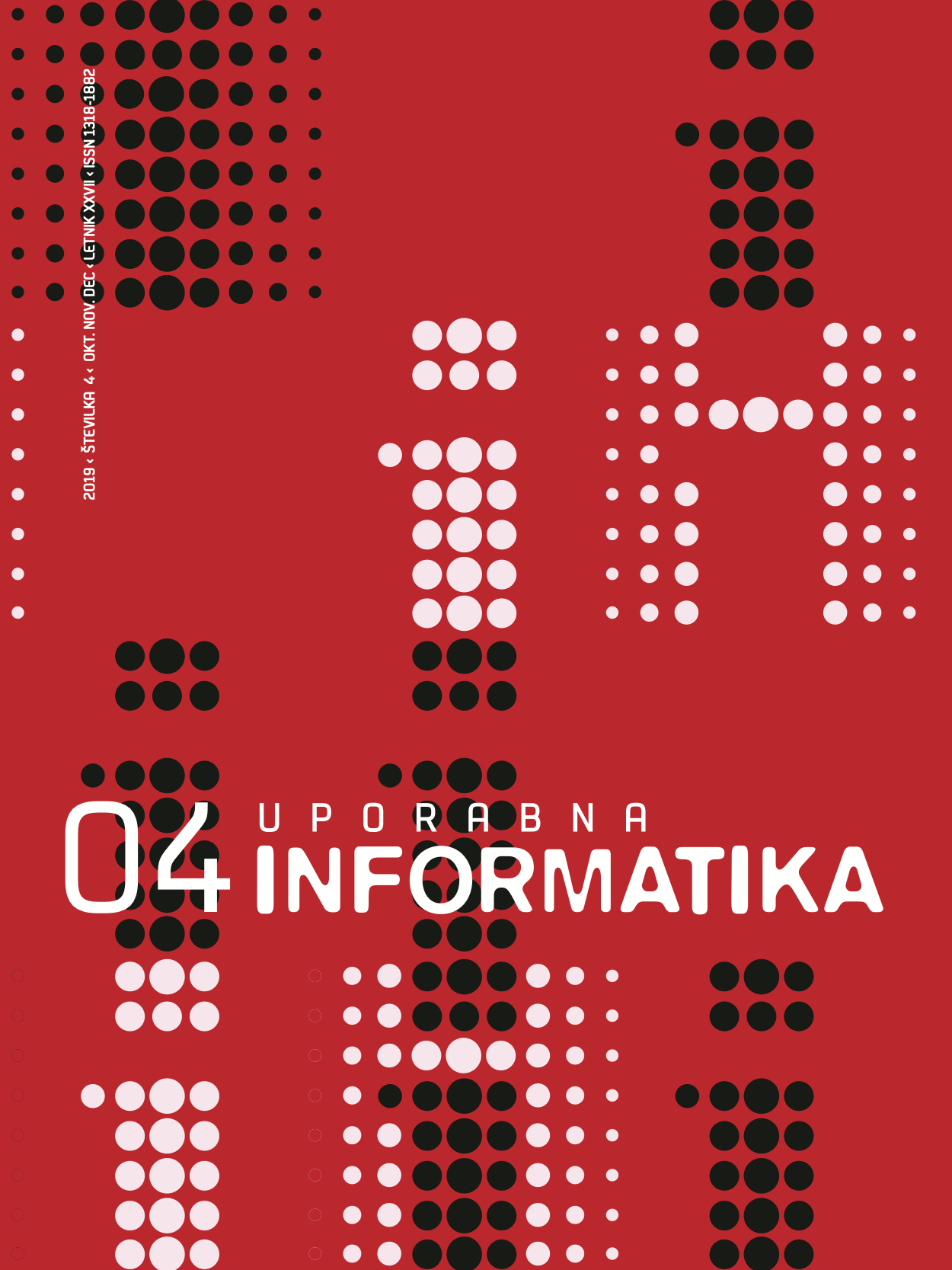Kako poznavanje časa odhoda signala vpliva na lokalizacijo z uporabo časa prihoda signala?
DOI:
https://doi.org/10.31449/upinf.59Ključne besede:
Cramér-Raova meja, lokalizacija, čas prihoda, čas odhodaPovzetek
Razvitih in preizkušenih je bilo že mnogo sistemov za lokalizacijo, vendar večina študij analizira le zmogljivosti konkretnih sistemov, medtem ko jih malo preuči vplive osnovnih predpostavk sistema. V tem članku analiziramo točnost metod lokalizacije vira, ki temeljijo na meritvah časa prihoda s strani sodelujočih sider. Ogledamo si tri različne modele: enega z znanim in dva z neznanim časom odhoda signala. Naša analiza temelji na elipsoidih, ki predstavljajo Cramér–Raovo mejo za vsak model. Tako pridobimo vpogled v geometrijske lastnosti modelov. Analiza razkrije, da je vpliv poznavanja časa odhoda zelo velik zunaj konveksne ovojnice sider, znotraj pa skromen. Rezultati kažejo, da je mogoče določene lastnosti zasnove z gotovostjo zamenjati za večjo točnost, med tem ko drugih ni mogoče.






